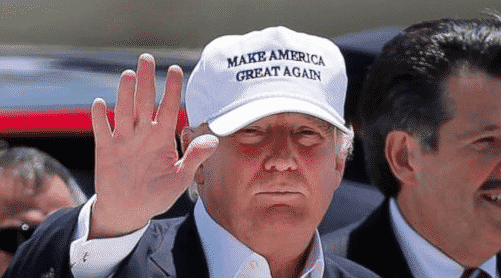(New York, NY) – President-elect Donald J. Trump today announced that he intends to nominate U.S. Senator Jeff Sessions to serve as Attorney General and U.S. Rep. Mike Pompeo as Director of the Central Intelligence Agency. Lt. Gen. Michael Flynn has been selected to be the Assistant to the President for National Security Affairs.
U.S. Senator Jeff Sessions has dedicated his life to public service. He has a distinguished legal career and has served as both the U.S. Attorney for the Southern District of Alabama and Alabama Attorney General prior to his service in the U.S. Senate. He has been one of President-elect Trump’s trusted advisors on the campaign and will now continue his service as our nation’s chief law enforcement officer.
“It is an honor to nominate U.S. Senator Jeff Sessions to serve as Attorney General of the United States,” said President-elect Trump. “Jeff has been a highly respected member of the U.S. Senate for 20 years. He is a world-class legal mind and considered a truly great Attorney General and U.S. Attorney in the state of Alabama. Jeff is greatly admired by legal scholars and virtually everyone who knows him.”
“I am humbled to have been asked by President-elect Trump to serve as Attorney General of the United States,” said U.S. Senator Sessions. “My previous 15 years working in the Department of Justice were extraordinarily fulfilling. I love the Department, its people and its mission. I can think of no greater honor than to lead them. With the support of my Senate colleagues, I will give all my strength to advance the Department’s highest ideals. I enthusiastically embrace President-elect Trump’s vision for ‘one America,’ and his commitment to equal justice under law. I look forward to fulfilling my duties with an unwavering dedication to fairness and impartiality.”
Lt. Gen. Michael Flynn, a retired United States Army Lieutenant General and former director of the Defense Intelligence Agency, assumes the position of National Security Advisor with a decorated career of more than 35 years in service to our nation. He served as President-elect Trump’s top military advisor during the campaign and will now continue providing expert advice and support to the President-elect as his National Security Advisor.
“I am pleased that Lieutenant General Michael Flynn will be by my side as we work to defeat radical Islamic terrorism, navigate geopolitical challenges and keep Americans safe at home and abroad,” said President-elect Trump. “General Flynn is one of the country’s foremost experts on military and intelligence matters and he will be an invaluable asset to me and my administration.”
“I am deeply humbled and honored to accept the position as National Security Advisor to serve both our country and our nation’s next President, Donald J. Trump,” said Lieutenant General Flynn.
Congressman Mike Pompeo, representing Kansas’ Fourth Congressional District, is a former active duty cavalry officer in the U.S. Army, graduated first in his class from the U.S. Military Academy at West Point, received his J.D. from Harvard Law School and was an editor of the Harvard Law Review. He currently serves on the House Intelligence Committee, which oversees America’s intelligence-gathering efforts.
“I am proud to nominate Congressman Mike Pompeo as Director of the Central Intelligence Agency,” said President-elect Trump. “He has served our country with honor and spent his life fighting for the security of our citizens. Mike graduated number one in his class at West Point and is a graduate of Harvard Law School where he served as an editor of the Harvard Law Review. He will be a brilliant and unrelenting leader for our intelligence community to ensure the safety of Americans and our allies.”
“I am honored to have been given this opportunity to serve and to work alongside President-elect Donald J. Trump to keep America safe. I also look forward to working with America’s intelligence warriors, who do so much to protect Americans each and every day,” said Congressman Pompeo.












President-elect Donald Trump campaigned on the promise of dismantling Dodd-Frank, and now Senate Democrats are pretty much the only thing that can derail that promise.
This week, key Democrats on the Senate Banking Committee indicated they want little to do with dismantling the 2010 law. But in their rush to save Dodd-Frank, they’ve shown just how badly they misread what bills like Dodd-Frank actually do.
For instance, Sherrod Brown, D-Ohio, the committee’s ranking member, doesn’t believe that dismantling Dodd-Frank fits the president-elect’s anti-establishment message.
Brown told reporters: “If Donald Trump starts doing the bidding of Wall Street, then the voters in Ohio who voted for him will realize that he’s joined the Republican establishment here in advocating the billionaire’s agenda.”
The Daily Signal is the multimedia news organization of The Heritage Foundation. We’ll respect your inbox and keep you informed.
That’s completely backward because Dodd-Frank does not in fact rein in the forces of Wall Street and protect everyone else.
Dodd-Frank does impose large volumes of complex rules on financial companies, but the largest (and best-funded) of those firms have the easiest time complying with the regulations, while smaller firms and consumers are hit the hardest.
Dodd-Frank does not empower “those who don’t have a voice in Washington, D.C.” It empowers an army of lobbyists and lawyers, since they’re the ones who get paid to secure the best possible deals for their clients. Naturally, it also empowers the senators and congressmen that these lobbyists call upon.
Under Dodd-Frank, the people on Main Street pay higher prices for loans, have a harder time getting loans, and get stuck paying for bailouts and federal guarantees.
Democrats have perpetuated the myth that deregulation caused the 2008 financial crisis, but that is absurd on its face. The claim looks even more baseless to anyone who bothers to check the details, since there has never been any substantial deregulation of financial markets in the U.S.
Even a mild investigation into the post-1999 world, when the Gramm-Leach-Bliley Act supposedly deregulated the big banks, clearly shows that the volume of regulation only increased. (Figure 1)
A deregulated financial system is not what imploded in 2008. Financial markets—not just banks—were full of minimum capital rules, liquidity rules, disclosure rules, leverage rules, bankruptcy exemptions for derivatives, and the constant threat that regulators would make up new rules.
The nation’s largest banks had federal regulators literally embedded in their headquarters on a daily basis.
Worse, everyone expected the federal government to step in and pick up the pieces if something went wrong. At the very least, people expected an expansion of FDIC deposit insurance coverage (well beyond what anyone on Main Street needs), and some kind of “emergency” funds from the Federal Reserve.
The large financial firms’ creditors had every reason to expect what most of them ended up with: special loans and taxpayer guarantees. When federal policies are chiefly geared toward “keeping the system going,” the market knows bailouts are coming. And that’s a major problem with the regulatory system that Dodd-Frank worsened.
People on Main Street understand, though, that this kind of system—one that is highly regulated and uses taxpayer money to cover losses—will never provide financial security for anyone other than the largest financial firms.
They can see what’s going on in Washington.
They know that bailing out the titans of finance actually costs them money, and they’re not buying the notion that adding yet more rules in the name of protecting Main Street will actually work. And they’re right to be so skeptical.
If the Democrats on the Senate Banking Committee really want to improve financial security for Americans, they’ll convince their colleagues to go back to the drawing board.
That means they’ll start with dismantling Dodd-Frank.
Then, they can get to work fixing the system the way they should have after the 2008 crash. They can get rid of the ridiculous rules that let regulators micromanage financial companies, and they can put safeguards in place to make bailouts less likely.
That means financial firms’ owners and creditors will have to absorb financial losses, and they won’t like that. And that’s proof that truly fixing financial regulations is anything but establishment-friendly.